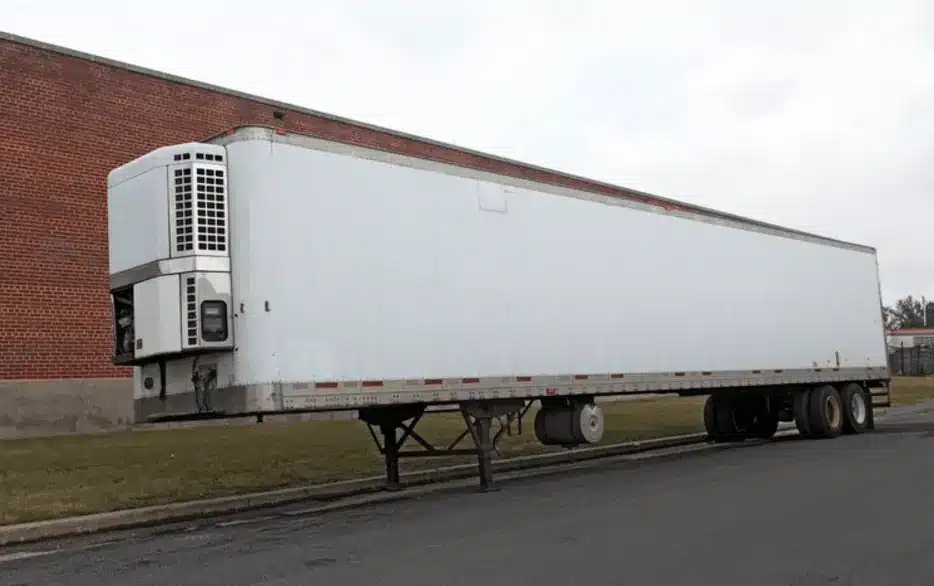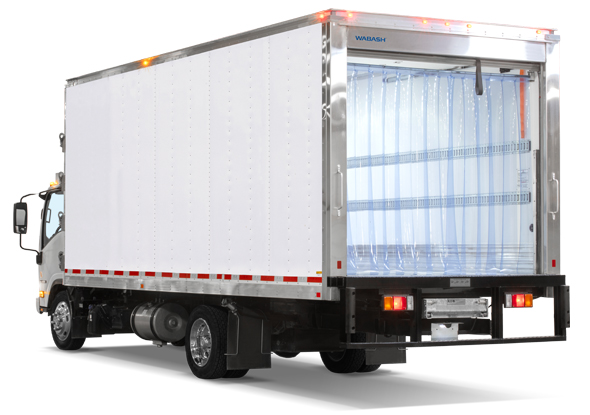Top Technologies in Transport Refrigeration: Enhancing Effectiveness and Security
The landscape of transportation refrigeration is undertaking considerable makeover, driven by developments intended at improving both efficiency and security. As these innovations continue to advance, it is crucial to explore their effects on functional methods and governing conformity, motivating a closer evaluation of just how they reshape the future of transport refrigeration.
Smart Temperature Checking Equipments
In the realm of transport refrigeration, wise temperature level surveillance systems have become an essential advancement for making certain the honesty of temperature-sensitive goods. These advanced systems leverage Internet of Points (IoT) modern technology to provide real-time data on temperature fluctuations, enabling operators to preserve ideal conditions throughout the supply chain. By continuously tracking the temperature of chilled containers and vehicles, companies can swiftly recognize inconsistencies that might endanger item top quality.

Moreover, wise surveillance systems frequently include automated alerts and notices, permitting stakeholders to respond immediately to any prospective problems. This aggressive approach not only decreases the risk of wasting yet also enhances compliance with governing standards regulating food security and pharmaceutical transportation.
The assimilation of data analytics within these systems also assists in anticipating maintenance, aiding operators to visualize potential devices failures before they happen. This capacity lowers downtime and optimizes operational effectiveness, eventually causing set you back financial savings.
Eco-Friendly Refrigerants
Smart temperature level surveillance systems play a vital function in preserving item high quality, yet the performance of transport refrigeration also hinges on the option of refrigerants used. In contrast, arising options like hydrocarbon-based refrigerants and hydrofluoroolefins (HFOs) present reduced GWP alternatives, supplying both efficiency and sustainability.
These environmentally friendly cooling agents not only lessen environmental influence but additionally line up with worldwide regulations focused on terminating hazardous materials. Their fostering can result in improved energy efficiency, ultimately decreasing operating expenses for transport refrigeration systems. Additionally, making use of natural refrigerants, such as ammonia and co2, has actually gotten grip because of their superb thermodynamic residential or commercial properties and lower ecological impact.
Investing in green cooling agents is not merely a regulative conformity measure; it stands for a calculated decision that improves brand reputation and cultivates client loyalty. thermo king truck refrigeration. By focusing on sustainable techniques, business can add to a greener future while making certain the stability of transferred items
Advanced Insulation Materials
Making use of innovative insulation products is essential for maximizing transport refrigeration systems, as they substantially enhance energy effectiveness and maintain constant temperature level control. Standard insulation methods usually fall brief in preventing thermal transfer, causing raised energy usage and fluctuating temperatures within chilled areas.
Emerging products such as vacuum cleaner insulated panels (VIPs) and aerogels supply premium thermal resistance, permitting thinner profiles without compromising efficiency. VIPs, as an example, make use of a vacuum layer to reduce conductive and convective heat transfer, making them excellent for space-constrained applications. Aerogels, recognized for their permeable and lightweight structure, give remarkable insulation while significantly decreasing overall system weight.
Furthermore, incorporating phase modification materials (PCMs) right into insulation systems can better stabilize temperature levels throughout transit. These materials soak up and launch thermal power, effectively buffering against exterior temperature level variations.
The assimilation of these innovative insulation products not only minimizes the functional costs connected with power consumption but likewise prolongs the service life of temperature-sensitive items. As the transport refrigeration market proceeds to evolve, the fostering of cutting-edge insulation modern technologies will be crucial in enhancing both efficiency and safety in chilled transportation.
Automated Course Optimization
The effectiveness of transport refrigeration systems is substantially enhanced via automated route optimization, which leverages advanced formulas and real-time data to figure out one of the most effective courses for distribution. By assessing various factors such as traffic patterns, weather, and delivery windows, these systems can substantially minimize travel time and fuel consumption.
Automated course optimization minimizes human mistake and subjective decision-making, which can bring about ineffectiveness. This innovation allows fleet managers to allot sources better, guaranteeing that refrigerated goods preserve their required temperature level throughout the trip. By optimizing routes, companies can likewise improve consumer complete satisfaction via prompt shipments.
Furthermore, automated systems can adjust to unpredicted situations, such as road closures or unexpected traffic spikes, enabling vibrant rerouting. This flexibility not only protects the honesty of temperature-sensitive products yet additionally adds to general functional efficiency.
Executing automated route optimization can cause considerable cost savings while minimizing the carbon footprint related to transport. As services progressively focus on sustainability, this technology attracts attention as a critical part in modern transportation refrigeration, straightening functional goals with environmental obligation. Inevitably, automated course optimization represents a considerable improvement in the mission for performance and security in transport refrigeration.

Real-Time Data Analytics
Automated route optimization considerably thermo king truck refrigeration benefits from the assimilation of real-time information analytics, which provides essential insights into the performance of transport refrigeration systems. By making use of real-time data, transport drivers can keep track of temperature level changes and devices efficiency, ensuring that subject to spoiling items are kept within needed specifications throughout transportation. This positive strategy not only improves the top quality of the moved products but likewise mitigates the danger of spoilage and loss.

Along with boosting effectiveness, real-time analytics boosts safety and security by making certain compliance with governing standards for temperature control. This not just safeguards public wellness but also strengthens a firm's credibility - reefer trucks thermo king. As the transportation refrigeration sector progresses, the combination of real-time data analytics becomes a foundation for driving development, sustainability, and operational quality
Conclusion
In verdict, the improvements in transport refrigeration significantly improve both performance and safety and security within the sector. Jointly, these innovations represent an important advancement in transportation refrigeration, making sure conformity with governing standards and promoting a greener future.
The landscape of transport refrigeration is going through significant makeover, driven by technologies intended at improving both effectiveness and safety.Smart temperature monitoring systems play an essential function in preserving item high quality, but the performance of transport refrigeration likewise pivots on the choice of cooling agents utilized. Their fostering can lead to improved power performance, inevitably minimizing operating costs for transportation refrigeration systems. Inevitably, automated course optimization stands for a substantial improvement in the pursuit for efficiency and safety and security in transportation refrigeration.
In conclusion, the advancements in transport refrigeration considerably enhance both efficiency and safety within the industry.